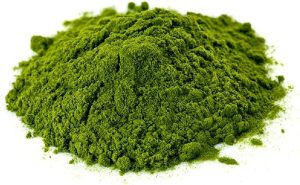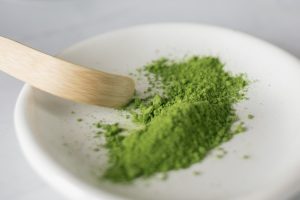
- Overview of Inositol
- Brief History of Inositol
- Functions of Inositol
- Recommended Daily Intake (RDI), Recommended Dietary Allowance (RDA), Adequate Intake (AI), or Reference Nutrient Intake (RNI) for Inositol
- Deficiency of Inositol
- Food Sources of Inositol and Where to Get It From
- Inositol and Its Interaction with Other Medications
- Websites to Probe Into for Information on Inositol
- Disclaimer
Overview of Inositol
Inositol is a naturally occurring compound that belongs to the vitamin B complex, though it is not officially classified as a vitamin. It is integral to various physiological processes, playing a crucial role in cell signaling, neurotransmitter function, and lipid metabolism. Often referred to as “vitamin B8,” inositol is found in foods like fruits, beans, grains, and nuts, and the body can also synthesize it from glucose. Its presence in cell membranes contributes to their structural integrity, aiding in cell communication and overall cell function.
Research suggests that inositol may have potential therapeutic applications, particularly in mental health. It is recognized for its involvement in the regulation of mood and neurotransmitter activity, and supplements like myo-inositol have been explored for conditions such as anxiety, depression, and polycystic ovary syndrome (PCOS). While inositol is generally considered safe, and dietary sources are abundant, individuals considering supplementation should consult with healthcare professionals to ensure appropriate dosages and assess its potential benefits for specific health concerns.
Brief History of Inositol
The history of inositol dates back to its initial discovery and isolation in the late 19th and early 20th centuries. Here is a brief overview:
- Discovery:
- Inositol was first discovered in 1850 by the British chemist, Sir Benjamin Collins Brodie, who isolated it from muscle tissue. However, its structure and chemical properties were not fully elucidated at that time.
- Identification and Naming:
- The compound was later identified and named inositol by German chemist Gustav von Bunge in 1875. The name “inositol” is derived from the Greek word “inos,” meaning muscle.
- Recognition as Part of the B-Vitamin Complex:
- In the early to mid-20th century, inositol was recognized as part of the B-vitamin complex. Although it is not officially classified as a vitamin, it plays a vital role in various physiological processes.
- Role in Phospholipid Metabolism:
- In the 1950s and 1960s, researchers began to understand inositol’s significance in phospholipid metabolism and its presence in cell membranes. This led to a deeper appreciation of its role in cellular structure and function.
- Therapeutic Potential:
- In recent decades, inositol has garnered attention for its potential therapeutic applications, particularly in the field of mental health. Research has explored its use in conditions such as anxiety, depression, and polycystic ovary syndrome (PCOS).
| Stage | Details |
|---|---|
| Discovery | Inositol was first discovered in 1850 by the British chemist, Sir Benjamin Collins Brodie, who isolated it from muscle tissue. However, its structure and chemical properties were not fully elucidated at that time. |
| Identification and Naming | The compound was later identified and named inositol by German chemist Gustav von Bunge in 1875. The name “inositol” is derived from the Greek word “inos,” meaning muscle. |
| Recognition as Part of B-Vitamin Complex | In the early to mid-20th century, inositol was recognized as part of the B-vitamin complex. Although it is not officially classified as a vitamin, it plays a vital role in various physiological processes. |
| Role in Phospholipid Metabolism | In the 1950s and 1960s, researchers began to understand inositol’s significance in phospholipid metabolism and its presence in cell membranes. This led to a deeper appreciation of its role in cellular structure and function. |
| Therapeutic Potential | In recent decades, inositol has garnered attention for its potential therapeutic applications, particularly in the field of mental health. Research has explored its use in conditions such as anxiety, depression, and polycystic ovary syndrome (PCOS). |
Today, inositol is recognized as an important compound involved in cell signaling, neurotransmitter function, and lipid metabolism. It is commonly found in various foods, and dietary supplements like myo-inositol are available for those seeking its potential health benefits. Ongoing research continues to uncover new insights into the diverse roles of inositol in human health.
Functions of Inositol
Inositol, a naturally occurring compound belonging to the B-vitamin complex, plays diverse roles in various physiological processes. Here are key functions of inositol:
- Cell Signaling and Communication:
- Inositol is a crucial component in the formation of inositol phosphates, which serve as secondary messengers in cell signaling pathways. These messengers play a fundamental role in transmitting signals within cells, influencing various cellular processes.
- Neurotransmitter Function:
- Inositol is involved in the synthesis of neurotransmitters, such as serotonin and acetylcholine. These neurotransmitters are essential for proper nerve function and play a role in mood regulation, memory, and cognitive processes.
- Cell Membrane Structure:
- Inositol is a key component of phosphatidylinositol, a phospholipid that contributes to the structural integrity of cell membranes. This is vital for maintaining cell membrane fluidity and function.
- Lipid Metabolism:
- Inositol is associated with lipid metabolism, helping to regulate the breakdown and utilization of fats. This involvement in lipid metabolism is relevant to the functioning of organs like the liver.
- Polycystic Ovary Syndrome (PCOS):
- Inositol supplementation, particularly myo-inositol, has been investigated for its potential role in managing conditions such as polycystic ovary syndrome (PCOS). Studies suggest that it may improve insulin sensitivity and support ovarian function in individuals with PCOS.
- Anxiety and Depression:
- Some research indicates that inositol may have therapeutic potential in managing anxiety and depression. It is thought to influence neurotransmitter activity and mood regulation.
- Ocular Health:
- Inositol has been explored for its potential benefits in promoting ocular health. It is present in the lenses of the eyes, and research suggests a role in preventing cataract formation.
- Insulin Signaling:
- Inositol compounds are involved in insulin signaling, contributing to glucose metabolism. This makes inositol relevant to conditions associated with insulin resistance, such as metabolic syndrome and type 2 diabetes.
Recommended Daily Intake (RDI), Recommended Dietary Allowance (RDA), Adequate Intake (AI), or Reference Nutrient Intake (RNI) for Inositol
While inositol is naturally present in various foods, including fruits, beans, grains, and nuts, its supplementation has been studied for certain health conditions. As with any dietary supplement, it’s essential to consult with healthcare professionals to determine appropriate dosages and assess its potential benefits based on individual health needs.
There is no established Recommended Dietary Allowance (RDA) or Recommended Daily Intake (RDI) for inositol. Inositol is not officially classified as a vitamin, and specific dietary reference values, such as RDAs, may not be available for all compounds.
The term “Adequate Intake” (AI) is sometimes used when there isn’t enough scientific evidence to establish an RDA. However, even an AI for inositol is not widely recognized, and dietary recommendations for inositol are often based on general dietary patterns and its presence in various foods.
It’s important to note that the body can synthesize inositol, and it is found in a variety of foods. Dietary sources include fruits, beans, grains, nuts, and organ meats. Inositol supplements, particularly myo-inositol, are also available and have been studied for certain health conditions.
If you have specific health concerns or are considering inositol supplementation, it’s advisable to consult with a healthcare professional or a registered dietitian. They can provide guidance based on your individual health status and needs. Additionally, since information may have evolved since my last update, checking with reputable health organizations or the latest dietary guidelines is recommended.
Deficiency of Inositol
Inositol deficiency is not a well-recognized or common condition. This is primarily because the body can synthesize inositol, and it is also obtained through dietary sources. However, there are situations where an imbalance or insufficiency of inositol may occur, leading to potential health issues. Here are some factors and conditions that may contribute to an inositol-related deficiency or insufficiency:
- Dietary Insufficiency:
- A diet lacking in foods that are natural sources of inositol, such as fruits, beans, grains, and nuts, may contribute to lower inositol intake.
- Malabsorption Disorders:
- Conditions that affect nutrient absorption in the intestines, such as celiac disease or inflammatory bowel diseases, could potentially lead to reduced inositol absorption.
- Genetic Disorders:
- Certain rare genetic disorders may impact the body’s ability to synthesize or utilize inositol properly, potentially leading to a functional deficiency.
- Metabolic Disorders:
- Disorders affecting inositol metabolism or utilization may contribute to reduced inositol levels. These disorders are generally rare.
- Altered Gut Microbiota:
- Changes in the gut microbiota, which play a role in inositol metabolism, may impact inositol levels. Dysbiosis or imbalances in gut bacteria could potentially influence inositol absorption or synthesis.
- Medical Conditions:
- Certain medical conditions, such as diabetes, may be associated with altered inositol metabolism. However, the role of inositol in these conditions is complex and not fully understood.
While inositol deficiency is not a common concern, some studies suggest that supplementation with specific forms of inositol, such as myo-inositol, may have therapeutic benefits for certain conditions. For example, myo-inositol supplementation has been studied for its potential role in managing conditions like polycystic ovary syndrome (PCOS).
As with any nutrient or compound, it’s important to maintain a balanced and varied diet to ensure sufficient intake of essential nutrients, including inositol. If there are concerns about inositol levels or if someone is considering inositol supplements, consulting with a healthcare professional is advisable for personalized guidance based on individual health status and needs.
Food Sources of Inositol and Where to Get It From
Inositol is present in various foods, and a well-balanced diet typically provides sufficient amounts. Here are some food sources of inositol:
- Citrus Fruits:
- Citrus fruits such as oranges, lemons, and grapefruits contain inositol. The peel of citrus fruits is particularly rich in this compound.
- Beans and Legumes:
- Beans, lentils, and peas are good sources of inositol. These legumes provide a combination of nutrients, including inositol.
- Nuts:
- Nuts, including almonds and peanuts, contain inositol. Snacking on a variety of nuts can contribute to inositol intake.
- Seeds:
- Sunflower seeds and sesame seeds are examples of seeds that contain inositol. These can be included in salads, yogurt, or consumed as snacks.
- Whole Grains:
- Whole grains such as wheat, oats, and brown rice contain inositol. Opting for whole grain varieties can enhance inositol intake.
- Cantaloupe:
- Cantaloupe, a type of melon, is a fruit that contains inositol. It can be enjoyed as a refreshing snack or added to fruit salads.
- Organ Meats:
- Organ meats, such as liver and kidney, are rich sources of inositol. However, these should be consumed in moderation due to their high cholesterol content.
- Meat and Poultry:
- Meat and poultry, including chicken and turkey, contain inositol. Including a variety of lean meats in the diet provides a range of essential nutrients.
- Eggs:
- Eggs, particularly the yolk, contain inositol. Incorporating eggs into the diet can contribute to overall inositol intake.
- Whole Wheat:
- Whole wheat products, such as whole wheat bread and pasta, contain inositol. Choosing whole grain options enhances nutrient content.
It’s important to note that inositol is also synthesized by the body and is present in various tissues. While dietary sources are valuable, the body can contribute to inositol levels through endogenous production.
For individuals considering inositol supplementation for specific health conditions, it’s advisable to consult with a healthcare professional to determine appropriate dosages and assess potential benefits based on individual health needs. As always, maintaining a diverse and nutrient-rich diet is crucial for overall health.
Inositol and Its Interaction with Other Medications
Inositol supplements are generally considered safe for most people when taken at recommended doses. However, as with any supplement, there is a potential for interactions with certain medications. If you are taking medications and considering inositol supplementation, it’s important to consult with your healthcare provider. Here are some potential interactions to be aware of:
- Lithium:
- Inositol may affect the metabolism of lithium, a medication used to treat bipolar disorder. Some studies suggest that inositol supplementation could increase lithium excretion, potentially reducing its effectiveness. If you are taking lithium, it’s crucial to discuss inositol supplementation with your healthcare provider.
- Antidepressant Medications (SSRIs):
- Inositol has been studied for its potential benefits in managing depression and anxiety. Some studies suggest that inositol may enhance the effects of selective serotonin reuptake inhibitors (SSRIs), a class of antidepressant medications. Combining inositol with these medications may lead to an additive effect, and dosage adjustments may be needed.
- Anticonvulsant Medications:
- Inositol may interact with certain anticonvulsant medications. If you are taking medications for seizures, it’s important to discuss inositol supplementation with your healthcare provider to ensure there are no adverse effects or interactions.
- Warfarin (Coumadin):
- Inositol may have mild antiplatelet effects, and there is a theoretical risk of increased bleeding when combined with anticoagulant medications like warfarin. If you are on anticoagulant therapy, it’s essential to inform your healthcare provider before using inositol supplements.
- Insulin-Sensitizing Medications:
- Inositol supplements, particularly myo-inositol, have been studied for their potential benefits in conditions like polycystic ovary syndrome (PCOS) and insulin resistance. If you are taking medications to improve insulin sensitivity, consult with your healthcare provider before adding inositol supplements.
Always inform your healthcare provider about any supplements you are taking, including inositol, to ensure safe and effective treatment. Individual responses to supplements can vary, and professional guidance is crucial to prevent potential adverse effects or interactions. If you are considering inositol supplementation, it’s advisable to work closely with your healthcare team for personalized advice based on your health status and medication regimen.
Websites to Probe Into for Information on Inositol
Here’s a compilation of information about inositol from the provided websites:
- Cleveland Clinic:
- Offers information on inositol, including its uses, side effects, and precautions. Discusses its potential role in mental health.
- WebMD:
- Provides an overview of inositol, its uses, potential side effects, and interactions with medications.
- Healthline:
- Covers the potential benefits of inositol, including its role in mental health, fertility, and metabolic health.
- Wikipedia:
- Offers a comprehensive entry on inositol, detailing its properties, sources, and various forms.
- Verywell Mind:
- Focuses on inositol’s potential benefits for mental health, particularly in relation to anxiety and panic disorders.
- Examine.com:
- Provides a detailed analysis of inositol, including its mechanisms of action, potential benefits, and recommended dosages.
- Health.com:
- Offers information on inositol and its potential benefits for mental health, including its role in mood regulation.
- PubMed Central:
- Links to a scientific article that explores the role of inositol in various health conditions, including its effects on mental health and metabolic disorders.
- Medical News Today:
- Discusses the potential uses of inositol, its sources, and possible side effects.
- Verywell Health:
- Focuses on the use of inositol in managing polycystic ovary syndrome (PCOS) and its potential benefits for women’s health.
Please note that information from scientific articles and reputable health websites should be considered when making decisions about the use of supplements. Consultation with a healthcare professional is recommended for personalized advice.
Disclaimer
The information is solely provided for educational purposes. It is not intended to diagnose, treat, cure, or prevent any disease. Seek the advice of your physician or qualified healthcare provider with any questions you may have regarding a medical condition at all times. Never disregard professional medical advice because of something you have read or learned from this article.






